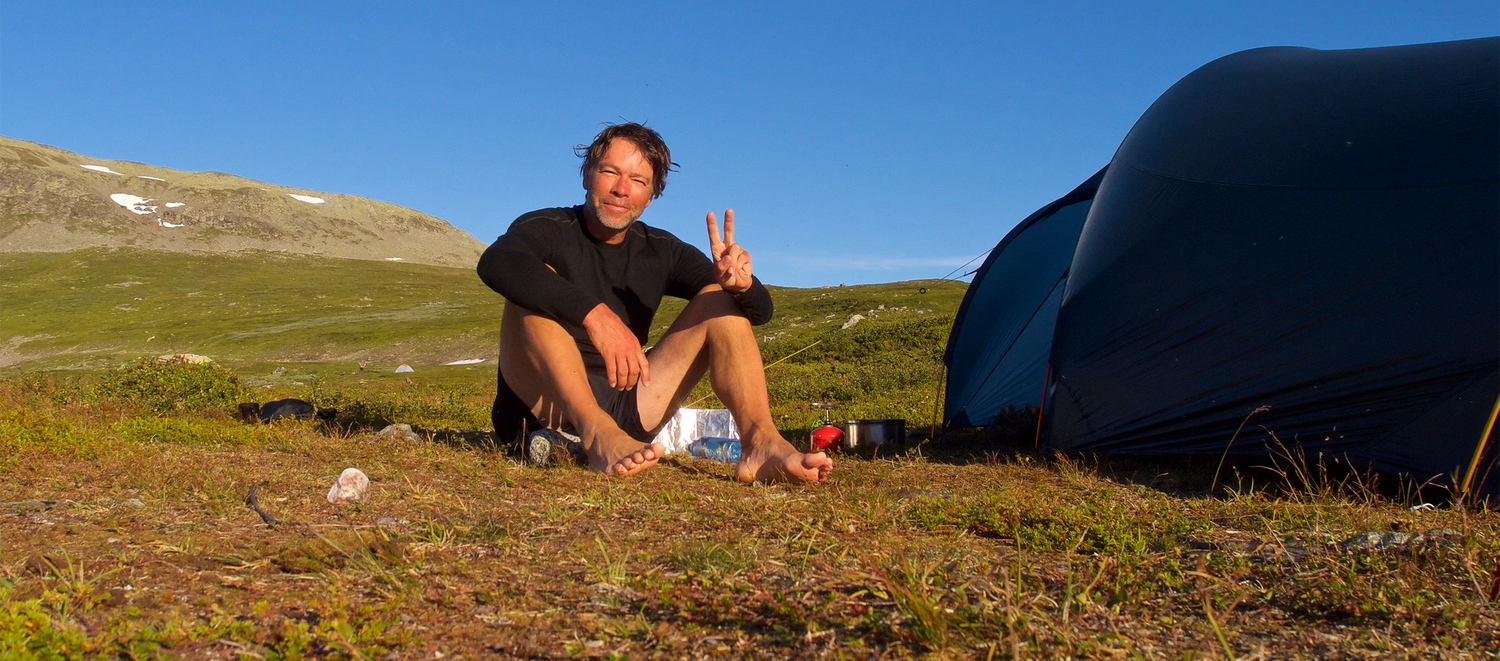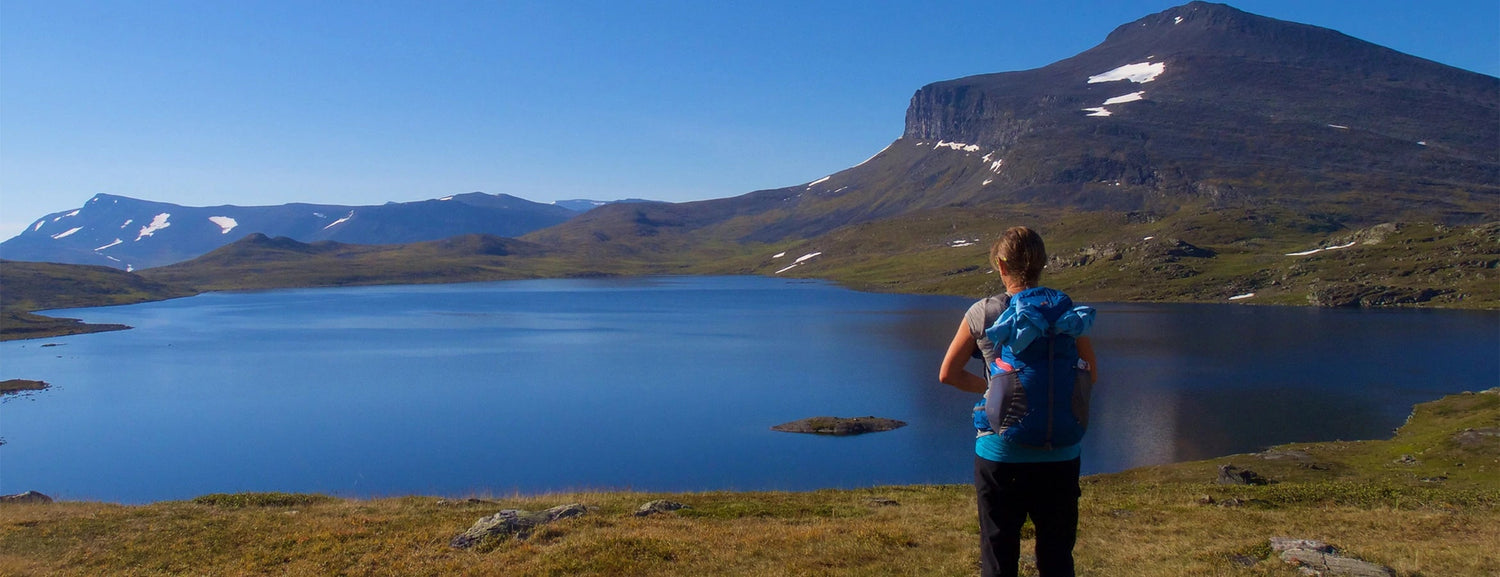What to pack: lightweight summer backpacking in Sweden
kora adventurer Roland Primus and his wife Claudia headed north of the Arctic Circle to explore Sweden’s scenic Kungsleden trail last summer.

They hiked 160km in five days through one of Europe’s last wilderness regions, camping along the way.
"Our rucksacks weighed just 11kg and 6kg, but we saw other hikers along the trail with much, much heavier bags. You don’t need much stuff if the weather is good. With a lighter pack you can move faster and enjoy more of the scenery," said Roland.
Camping Equipment
You can save a lot of weight by choosing your ‘big three’ wisely: rucksack, sleeping bag and tent.
Burton AK 55L rucksack.
It did weigh 1850g, but I cut off everything I could, so it’s now 1080g with the frame. Claudia uses a Lowe 25L rucksack with no frame (600g).
Western Mountaineering SummerLite down sleeping bag.
Rated to 0°C.
Helsport Reinsfjell Superlight 2 tent.
Though slightly heavier, I think it’s much better than the super, super-light one which has only a mesh inner. As the temperature may drop below -7°C north of the Arctic Circle in summer, the air current though the mesh is no fun. So I prefer two walls.
It also has more space. If you’re walking in the rain for days you’ll want to cook inside and keep all your stuff there without always moving it around stuff. Also, I am 190cm and a lot of tents are so short you’re touching the wall with your foot - and then if it rains you get wet etc.
I also like that the fly sheet goes down all the way to the ground. European tent brands such as Helsport, Terra Nova and Hilleberg are designed for camping in rainy, windy and swampy places like Scotland and Scandanavia. A lot of US tent brands are designed with dry, desert conditions in mind, with more venting - so bear that in mind when you’re choosing your tent.
Gas stove for cooking.
Have a trial run at home to test how much you need each day. Figure out exactly how much gas you need to boil a litre of water from snow, lake or creeks.
In warm weather, we boil water three times each day. Oxtail soup for lunch (replaces the salt you lose while walking), dehydrated food for dinner and tea at night.
Over a week we’ll use a 250g bottle, though it can be less if we make fires. If it’s cold, you’ll need more. Often at the very start of a trail there are nearly full, leftover gas bottles which people leave because you can’t take it to the plane.
A wind shield for your stove
Saves more in fuel than you lose in the extra carrying weight you carry, especially for longer trips.
Two long, foldable spoons, a knife and a light chrome cooking pot
Titanium is lighter, but takes more heat and therefore gas, so you lose in the long run!
Clothes — for the day
We pack only two sets of clothes, for day and night. If your day clothes get dirty, wash them while you wear your night clothes. For safety reasons, it’s crucial you keep your night clothes in a dry bag and don’t take them out of the tent if it’s raining. They’re your backup if you fall in a river or lake or get very cold.
Lightweight trail shoes.
Weight is critical when you’re walking all day - keep the gear on your legs as light and comfortable as possible - you’ll enjoy the journey more. We generally stay away from 'waterproof' shoes. Once they are wet they don't dry and are heavy - not to mention the smell! Wicking shoes dry fast.
Rain gear is heavy, so we only take it along if heavy rain is forecast or the trip is longer. I keep my clothing in a dry bag.
One merino t-shirt.
One pair of Fjallraven G-1000 trousers.
These are windproof and mosquito-proof.
One pair of merino socks.
One cap.
Food
It’s important to buy food you’ll enjoy. The toughest to find is bread, but the Swedish make a dry, flat bread which is 420 calories.
We took 1.2 kg food per day—650g for me and 550g for Claudia, which provided us with 3250 and 2750 calories respectively. That’s fine for a week or two—for longer trips or colder climates you’ll need more, for shorter or hotter trips you’ll need less.
Normally you look for less calories, but when we’re camping we don’t buy anything with less than 450 calories per 100g—and preferably more than 550 calories. We look for grease, fat and oil. Sugar is not so great energy; it is fast but also burns fast.

Roland and Claudia packed light for the trip - their backpacks weighed 11kg and 6kg respectively
kora yak wool base layers are perfect for walks in varied temperatures; with natural fibers offering warmth and breathability.